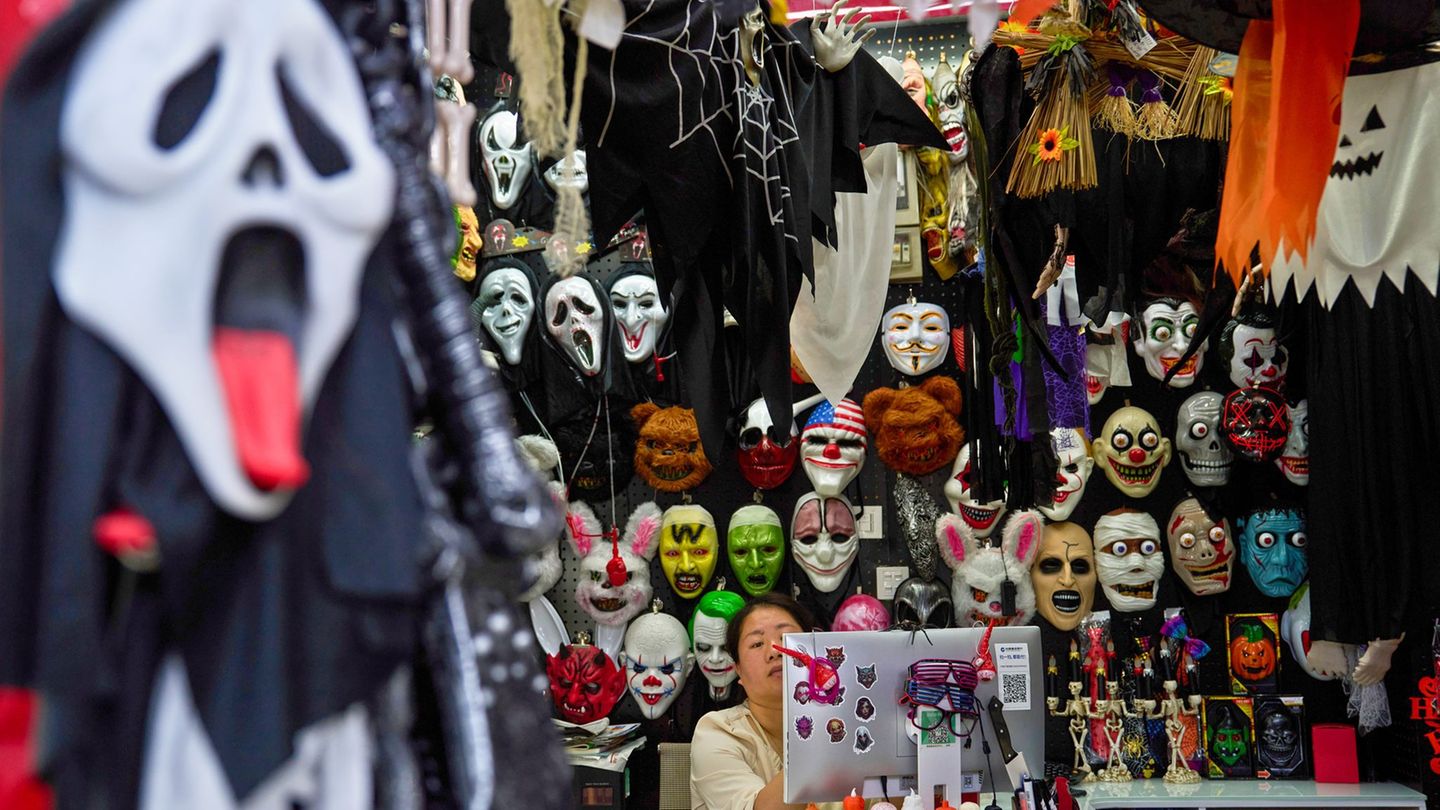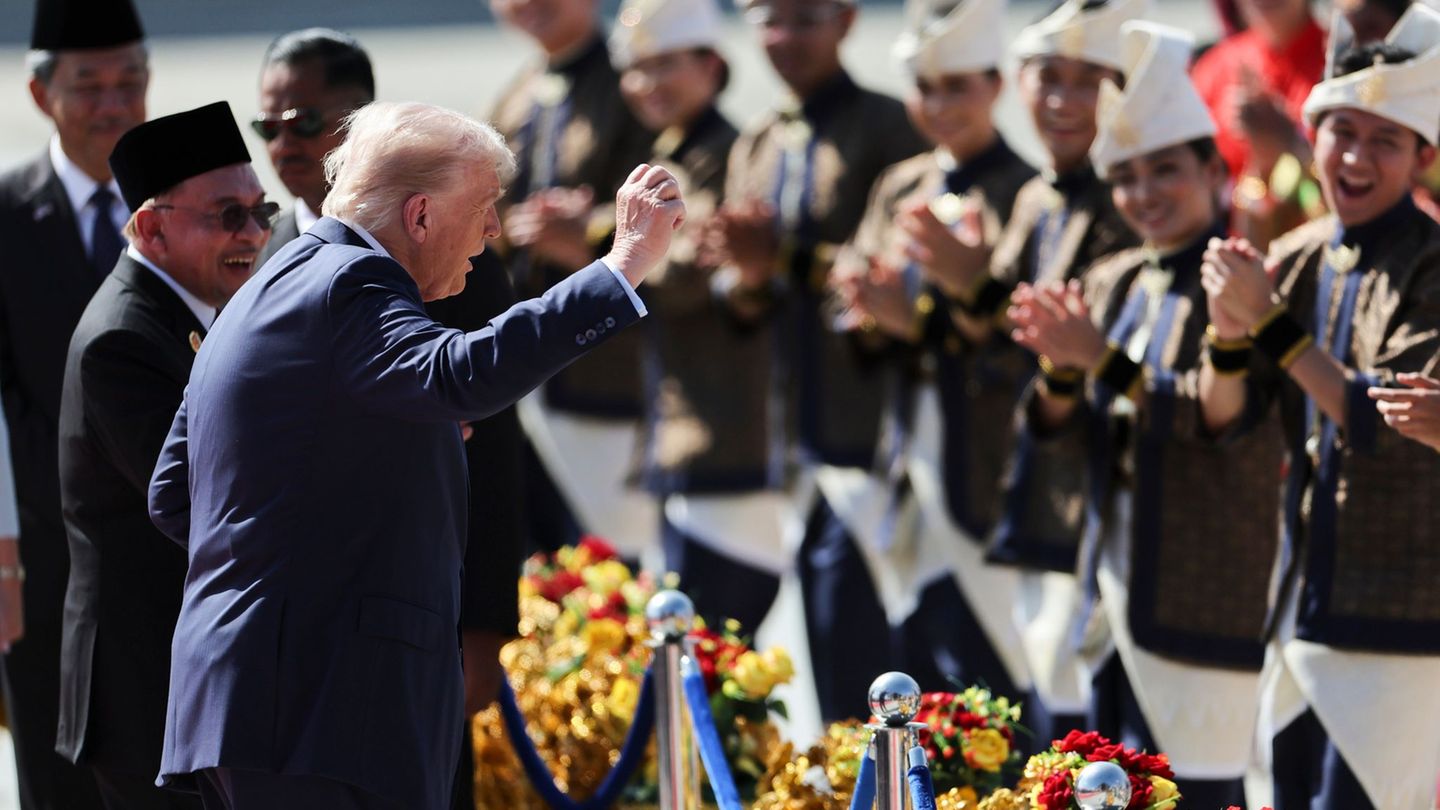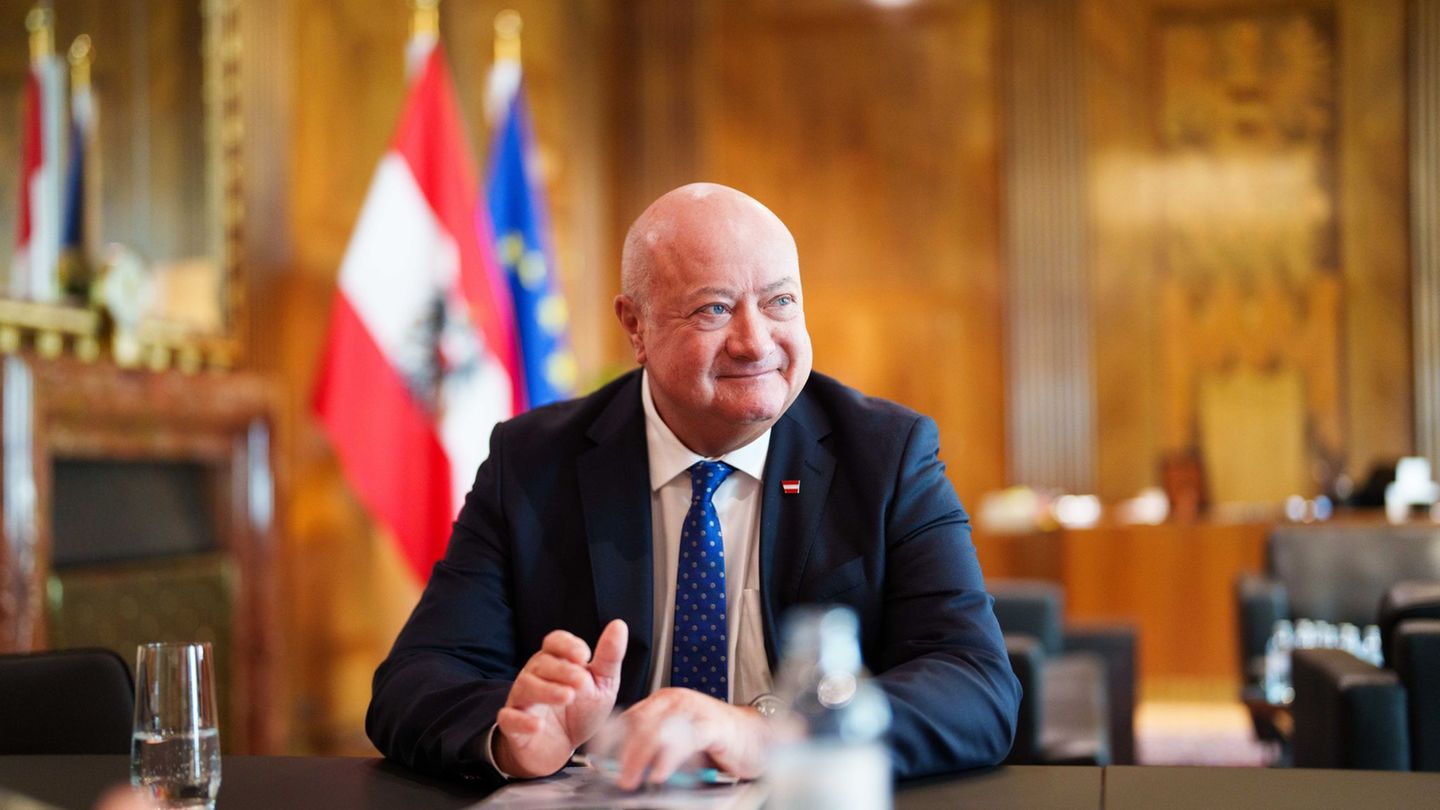The German Television Award was presented for the first time in 1999 – and soon it will be that time again. The story of the transparent obelisk itself has elements of drama and comedy. A look back and a look back.
The tragedy of the German Television Awards is that in one of their most famous moments, no award could be given at all. It was in 2008 when the then 88-year-old literary critic Marcel Reich-Ranicki stepped onto a sparkling stage in Cologne and left the assembled German TV celebrities in a state of shock.
“I will not accept this award!” the so-called pope of literature raged at the time, cutting the air with his hand. “And I also think it’s terrible that I had to experience this for four hours.” Reich-Ranicki was actually supposed to receive the award for his life’s work. Instead, the 88-year-old took the axe to a work by one of the major German TV stations.
The television award was founded ten years earlier, in 1998, by ARD, ZDF, RTL and Sat.1. The first award ceremony took place in 1999. The award is therefore currently celebrating an anniversary – 25 years. On Wednesday (September 25th), the first channel (8.15 p.m.) will again show a large TV gala, hosted by Barbara Schöneberger. The day before, there will be a first, somewhat more intimate award ceremony in certain categories: the “Night of the Creatives”, hosted by Esther Sedlaczek.
The timing already suggests that the television award survived Reich-Ranicki’s fury, which is why its history should not be reduced to this truly iconic moment. But the fact that the incident is still a must in any story about the obelisk-like trophy says a lot about its historical ups and downs.
The television award should be an event
Looking back: In 1999, the two TV awards Telestar from ARD and ZDF and the Golden Lion from RTL were merged into the German Television Awards. The station bosses involved agreed that a gala should be broadcast every year. Less fragmentation, more event – they thought big. Television was also still an absolute leading medium. Were the German Emmys born? That is the name of the most important US television awards.
In October 1999, for example, “TV total” won the award for “Best Entertainment Show” in a gala presented by four presenters (Gabi Bauer/ARD, Johannes B. Kerner/ZDF, Kai Pflaume/Sat.1, Jochen Busse/RTL). The show still runs today, although no longer with Stefan Raab, who is back on the air after a long break from TV – which is a good illustration of the direction German television is taking. “Wetten, dass..?”, on the other hand, was named “Best Show” in 1999. Careful observers will notice that the categories were not always clearly defined.
The biggest crisis, however, did not occur until around 15 years later. There was repeated criticism of poor ratings, frequently changing categories and the way the show was made. In 2015, the awards ceremony was cancelled altogether, after which it was continued in a slimmed-down form as an industry meeting. At times there was no broadcast on television at all, which can be described as odd for a TV award.
A kind of rebirth has only been achieved in recent years. For some time now, the division into two evenings has been established, which has spread out the entire ceremony and prevented lengthy award shows. In addition, you can watch on TV again. There have also been adjustments in the background. The German Television Award continues to be supported by ARD, RTL, Sat.1, ZDF, but also by Deutsche Telekom. The streaming providers Disney+, Netflix and Prime Video are involved as partners.
“The focus is increasingly shifting to time-independent use of the Internet, and the award also reflects the changing viewing behavior of viewers,” WDR director Tom Buhrow told the German Press Agency about the structural change. This year he is the chairman of the ARD’s circle of donors. Buhrow also describes the award as “the most important award in Germany for the medium of moving images, whether linear or digital.” The foundation is that the entire industry wants to honor and celebrate its best.
Before the 25th awards ceremony, jury chairman Wolf Bauer was also jubilant. This year, he said, they had “seen a peak in terms of programming,” referring to the quality of the material reviewed. It is no longer possible to research whether Marcel Reich-Ranicki would see it the same way – the literary critic died in 2013.
There are certainly some notable entries in the running. Among other things, the ARD drama series “Die Zweiflers” is a big favorite with six nominations. The tragic-humorous mini-series revolves around a Jewish family with a delicatessen and restaurant in Frankfurt. In April, the production won the award for “Best Series” of the year in Cannes (at the International Series Festival).
How important is the German Television Award?
“The award is important for the television industry,” says communications scientist Lothar Mikos – even if you certainly can’t speak of “the German Emmys.” The reputation of the Grimme Prize is certainly better.
However, Mikos considers the aftermath of Reich-Ranicki’s angry speech to be quite mild. “It’s now more of a funny anecdote that can be told,” he says. The criticism at the time was based “on false ideas about television.”
German Television Award
Source: Stern
I am an author and journalist who has worked in the entertainment industry for over a decade. I currently work as a news editor at a major news website, and my focus is on covering the latest trends in entertainment. I also write occasional pieces for other outlets, and have authored two books about the entertainment industry.




